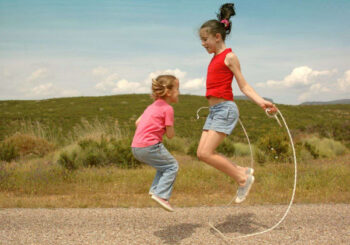By John Patterson
Staff Writer for Wake Up World
In our increasingly dynamic and demanding contemporary society, stress has become an almost omnipresent companion, affecting even the youngest generation. The burdens associated with school, peer relationships, and extracurricular commitments can exert a substantial influence on the well-being of children. However, a study carried out by researchers hailing from the University of Basel in Switzerland has shed light on the significance of daily exercise as a coping mechanism for stress among school children. These findings serve as a testament to the pivotal role that physical activity plays in enhancing the mental well-being of young individuals.
[pro_ad_display_adzone id=”110028″]
Exercise: A Key to Stress Resilience
“Get some exercise!” It’s advice often given to adults grappling with stress. Exercise is known to be a potent stress reliever, but the question arises: Does this principle hold true for children as well? Dr. Manuel Hanke and Dr. Sebastian Ludyga, leading a research team from the Department of Sport, Exercise, and Health, delved into this query. Their study, recently published in the Journal of Science and Medicine in Sport, examines the effect of physical activity on children’s stress levels.
In their study, the researchers enlisted 110 children aged between 10 and 13. These young participants wore sensors to track their daily movement for an entire week. Subsequently, the children were brought into a laboratory setting for two separate tasks—a stressful task and a non-stressful control task. The researchers measured the children’s physical stress reactions by analyzing the concentration of the stress hormone cortisol in their saliva.
The results were telling. Children who engaged in more than an hour of exercise daily, aligning with the World Health Organization’s (WHO) recommendations, exhibited lower cortisol levels during the stress-inducing task compared to their less active peers. Dr. Manuel Hanke, lead author of the study, commented, “Regularly active children seem to have a reduced physiological stress reaction in general.” This resilience even extended to the control task, suggesting that physically active children experience less stress in unfamiliar situations.
Understanding the Mechanism
A fascinating aspect of this study is the role of cortisol. It’s noteworthy that cortisol levels typically rise during exercise. Dr. Sebastian Ludyga suggests, “When children regularly engage in physical activities like running, swimming, or climbing, their brains learn to associate a cortisol increase with something positive.” This positive association might help prevent cortisol levels from spiking too high during stressful situations, such as exams.
In addition to analyzing cortisol levels, the researchers also studied cognitive reactions to stress. They recorded participants’ brainwaves via electroencephalogram (EEG) during the stress task. The goal is to investigate whether physical activity has an influence on cognitive responses to stress. Stress can disrupt thinking processes, occasionally leading to “blackouts.” Dr. Hanke explains, “The team aims to determine whether physical activity can mitigate these cognitive effects of stress.”
[pro_ad_display_adzone id=”110030″]
The Stress-Inducing Tasks
The study employed the Trier Social Stress Test for Children, a carefully designed set of tasks aimed at inducing stress in the participants. In the stressful task, the children were required to read a story with an open ending. Subsequently, they had only five minutes to prepare before presenting the rest of the story to a jury, using their notes. Unbeknownst to them, the preparation time was intentionally short, designed to induce additional stress. The stress was further amplified by an arithmetic task, in which participants had to repeatedly reduce a three-digit number by a certain value within five minutes. Errors in this task required restarting from scratch, adding to the pressure.
The control task, conducted separately, involved reading a story, followed by a discussion of general questions about the story with a researcher. In both sessions, saliva samples were collected at regular intervals before and after the tasks to measure cortisol levels.
Conclusion
The findings from the University of Basel’s study provide valuable insights into the critical role of physical activity in helping school children manage stress. Regular exercise not only reduces cortisol levels during stressful situations but also enhances their overall stress resilience. This research opens doors to further investigations into the cognitive benefits of exercise for children under stress, potentially revolutionizing the way we approach childhood stress management.
In a world where stress seems ever more pervasive, empowering our children with the tools to cope and thrive is essential. As parents, educators, and caregivers, let us heed the message of this research and encourage our children to stay active. Through exercise, we can equip them with the resilience they need to tackle life’s challenges head-on, with confidence and grace.
Reference:
- Manuel Hanke, Vera Nina Looser, Fabienne Bruggisser, Rahel Leuenberger, Markus Gerber, Sebastian Ludyga. Moderate-to-vigorous physical activity and reactivity to acute psychosocial stress in preadolescent children. Journal of Science and Medicine in Sport, 2023; DOI: 10.1016/j.jsams.2023.07.010
About the author:
John Patterson is an avid writer and researcher who delves into the latest scientific research. With an insatiable curiosity, he translates complex concepts into accessible narratives, allowing readers to embark on a journey of discovery. Through his work, John bridges the gap between experts and the public, igniting curiosity and inspiring meaningful conversations about scientific breakthroughs.
[pro_ad_display_adzone id=”110027″]







